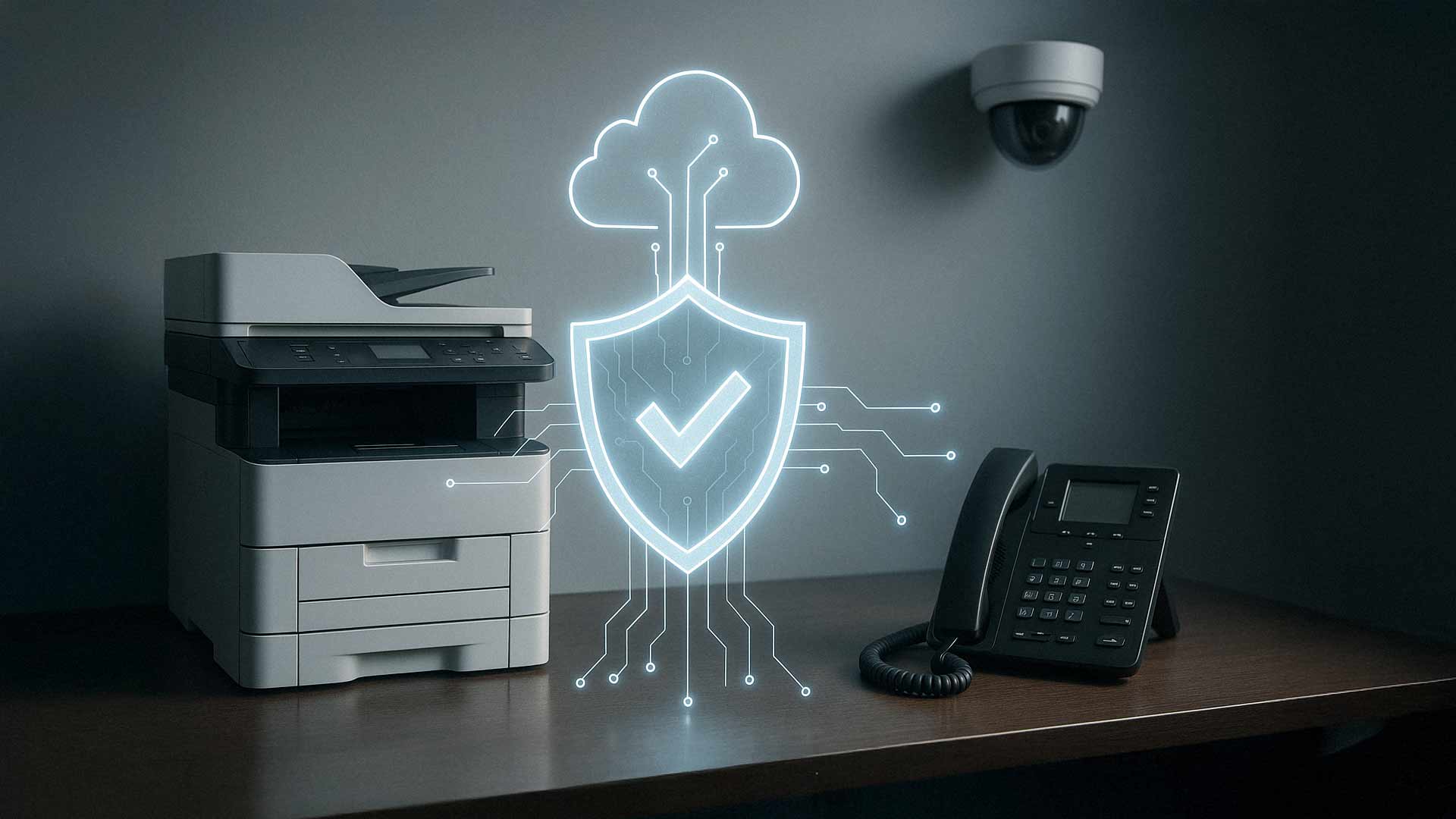How Compliance Requirements Affect Every Office Tech Tool
August 13th, 2025 | 4 min. read

As you know, technology touches nearly every piece of sensitive information your business handles.
Whether it is a printer producing medical forms, a phone system handling customer credit card payments, or a cloud platform storing client records, compliance requirements affect how these tools must be managed.
Ignoring compliance is not just a technical oversight; it can lead to costly fines, damaged trust, and even legal action.
Let’s look at why compliance matters, how it applies to everyday office technology, and what you can do to keep your business protected.
Why Compliance Matters for Office Technology
Protecting Sensitive Data
Compliance standards are designed to safeguard private information from theft, loss, or unauthorized access. This includes personal customer data, payment details, employee records, and other sensitive business information.
Avoiding Legal and Financial Penalties
Regulatory bodies can issue significant fines for non-compliance. In some industries, violations can also result in the suspension of business licenses or legal restrictions that make it hard to operate.
The Compliance Standards You Should Know
HIPAA for Healthcare Data
The Health Insurance Portability and Accountability Act (HIPAA) sets strict rules for how healthcare providers, insurers, and their vendors handle patient data.
This includes any technology that stores, transmits, or displays medical information.
PCI DSS for Payment Processing
The Payment Card Industry Data Security Standard (PCI DSS) applies to any business that processes credit card transactions.
This means your payment systems, phone systems, and even your internet-connected devices must meet these requirements.
GDPR and Data Privacy Laws
The General Data Protection Regulation (GDPR) governs how companies handle personal data for EU residents. Even if your business is in the United States, GDPR may apply if you serve European customers. Similar data privacy laws are emerging in many U.S. states.
Industry-Specific Regulations
Industries such as finance, education, and legal services have their own compliance frameworks. For example, FINRA for financial services or FERPA for educational institutions.
How Compliance Impacts Common Office Technology
Printers and Copiers
Multifunction devices can store copies of every document they process. Without proper security controls, this data could be accessed by unauthorized individuals. Compliance often requires:
- Data encryption on device hard drives
- Secure print release so documents are not left unattended.
- Regular firmware updates from the manufacturer
Business Phone Systems
Phones that handle customer payment information or personal details must ensure secure call recording, encryption, and restricted access to voicemail or stored call data.
This is especially important for call centers or customer service teams.
Security Cameras and Access Control
Surveillance systems collect video data that may include personal or sensitive information. Compliance could mean:
- Limiting who can view or download footage
- Encrypting stored video files
- Setting retention policies that meet legal guidelines
Managed IT Services and Cloud Platforms
From email systems to cloud storage, compliance rules dictate how data is stored, transmitted, and accessed. Your IT provider should be able to implement encryption, access controls, and regular security audits.
The Risks of Ignoring Compliance in Technology Choices
Data Breaches and Public Trust
A breach involving sensitive customer data can severely damage your reputation. Customers may lose confidence in your ability to protect their information, which can hurt sales and retention.
Costly Fines and Legal Consequences
Regulatory fines can be steep. For example, HIPAA violations can result in penalties of thousands of dollars per incident, while GDPR violations can reach millions.
Steps to Ensure Your Tech Stack Meets Compliance
Work With Vendors Who Understand Compliance
Choose providers who can explain how their products meet the regulations that apply to your industry. They should be able to provide documentation and proof of compliance.
Conduct Regular Security and Compliance Audits
Regular audits can identify gaps in your compliance posture before they become violations. These should include both internal checks and third-party assessments.
Train Employees on Compliance Best Practices
Technology is only part of the equation. Your staff must understand how to handle sensitive data, recognize phishing attempts, and follow secure workflows.
Questions to Ask Your Technology Provider
About Data Encryption and Storage
- Is all data encrypted in transit and at rest?
- Where is the data physically stored?
About Access Controls and Authentication
- Can we set different access levels for other employees?
- Do you support multi-factor authentication?
About Audit Trails and Reporting
- Can the system produce detailed logs for compliance audits?
- How long are records retained, and can retention be customized?
Compliance Requirements and Your Office Tech Tools: Final Recommendations
Compliance is not optional, and it applies to far more than just your computer network. From printers to phone systems to security cameras, every connected device in your office can be subject to regulations.
By choosing vendors who understand your compliance needs, conducting regular audits, and training your team, you can reduce risk while keeping your business operations smooth.
At AIS, we help businesses align their managed IT services, office security systems, and other technology tools with industry compliance requirements.
Our goal is to make sure you have the proper safeguards in place without disrupting productivity.
For more information on compliance best practices, make sure to reach out to us today!
A true southerner from Atlanta, Georgia, Marissa has always had a strong passion for writing and storytelling. She moved out west in 2018 where she became an expert on all things business technology-related as the Content Producer at AIS. Coupled with her knowledge of SEO best practices, she's been integral in catapulting AIS to the digital forefront of the industry. In her free time, she enjoys sipping wine and hanging out with her rescue-dog, WIllow. Basically, she loves wine and dogs, but not whiny dogs.
Topics:



